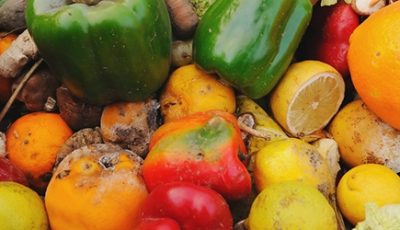Canadians’ Food Wasting Habits Need to Stop
TORONTO, March 27, 2015 – “Stop wasting your food!”
A lecture delivered in every dining table, is now a national call to all Canadians.
Green Living Enterprises, Canada’s leading cause marketing group, says Canada’s food waste problem needs to be addressed at the household level.
The Toronto Food Policy Council estimates about $27 billion worth of food produced and sold in Canada is wasted every year, and of that, approximately $13 billion is discarded at the consumer level. A recent University of Guelph study on Food Waste estimates the average Canadian household wastes 4.5 kilograms of food per week.
- Canadian households waste 4.5 kilograms of food on average per week
- 20 -40 per cent of commercial fruits and vegetables are thrown away for being cosmetically imperfect
- 64 per cent of waste in Canada is completely avoidable
“When you think about food waste, we often point fingers at wastage at a commercial level. We never think about food waste as a problem that stems from our homes,” says Laurie Simmonds, CEO of Green Living Enterprises. “Most people underestimate the impact of the volume of food they throw away from their kitchens.”
“What is alarming is that a staggering 64 per cent of this waste is completely avoidable,” says Michael von Massow, lead researcher for the Food Waste study.
To demonstrate the magnitude of Canada’s food waste problem, Green Living Enterprises have rallied together local Ontario chefs, farmers, researchers and local government advocates around the “Mindful Plate” food feature at this year’s Green Living Show.
“The show, being North America’s largest consumer show dedicated to healthy and sustainable lifestyle, is our biggest platform to raise awareness on the issue of food waste. Through the Mindful Plate, we not only cast a light on the issue, we also provide practical solutions that can be easily implemented in the home,” adds Simmonds.
Separating your garbage is the first step. The Food Waste study found that people who use a compost bin produce less food waste than those who do not. In York region, the green bin program has been responsible for 82 per cent of food waste diverted from landfills.
Long term solutions lie in educating households to reduce the volume of waste altogether by maximizing the use of ingredients and prolonging the freshness of produce. Through the help of some of Ontario’s top chefs, the Green Living Show is showcasing gourmet dishes made from often discarded produce to convince people that they can make delicious meals from roots, stems and bones that they normally throw away. The show also features expert refrigerator organizing tips to ensure that fruits and vegetables do not spoil before their time.
“Over the last nine years, we’ve worked Canada’s leading thinkers and entrepreneurs to drive home the message that living a more sustainable lifestyle is not a fringe movement – it’s something we all need to be mindful of because small changes can impact your family’s health, your budget and future generations, ” says Simmonds.
About The Green Living Show
The Green Living Show is Canada’s largest consumer show dedicated to simple solutions for leading a healthy and sustainable lifestyle. This three-day event offers inspiration for all ages and features influential speakers; eco home, cottage and garden design; local and organic food and wine tastings; health, wellness and yoga pavilions; eco fashion and green beauty makeovers; electric and hybrid car test drives; nature exhibits and fun activities for the entire family. www.greenlivingshow.ca







